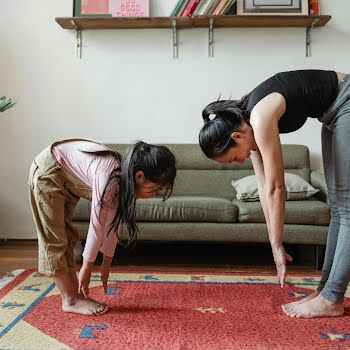
‘I knew how to be the life of the party, to make others feel special. So I did that. For years’: The dark side of people-pleasing
By Niamh Ennis
31st Mar 2021
31st Mar 2021
I became very good at people-pleasing, I learned how to be there for whoever needed me and however they needed me. But I was miserable.
How do you know if you are a people pleaser? Well, a people pleaser is someone who constantly does everything they can just to make others happy. They’ll often go far out of their way to please someone, even if it means making personal sacrifices and using up their own time and resources. They will always put others needs ahead of their own.
If this sounds like you, then welcome to the club!
How it begins
We all know how it feels to want people to like us, to accept us. We have all felt that urge for the approval of others. It’s natural and there is absolutely nothing wrong with us wanting to be there for others and offering them real help and genuine support.
But the problems emerge when we lose ourselves in the process of doing this. We become so focused on being there for others, doing what they want that we lose sight of what it is that we want. That there is the official sign that we have moved entirely into people-pleasing mode.
From the clients I work with (as well as extensive personal experience) I’ve come to realise that People Pleasers break down into the following four categories.
What kind of People Pleaser are you?
The OG
We all know them, we have all been them. They’re the original people pleasers. These are the group who are just so damn nice that they’re tripping over themselves trying to keep everyone around them happy. They are the ones who constantly send messages into the group app so as not to leave anyone out, they spend hours imputing everyone’s birthday into their phone (two days early so they can send the card) their main purpose in life is to ensure that everyone else happy.
The Smoother
The one you want around when rows are breaking out. They want everyone to get along, to smooth over any disagreements. If you’re happy, they’re happy. In a bid for them to feel safe and secure within their relationships and in their environment, they work hard at making sure everyone around them is getting along, conflict-free and harmony reigns.
The Great Pretender
Also known as being in total denial. They come across as the tough, confident one. They are above it all and appear to have little interest in any definitions of a people-pleaser, often pretending to not even know what it means. However, they may in fact be avoiding having to confront this and are using their own unique way of staying safe and leading, taking charge is the only way to know how to do this. Apathy is their defence.
The Understudy
They dim their light so that someone else can shine. They see their supportive function as a deeply bonding exercise, standing behind the centre of attention, making sure they have everything they need to maintain their place under the spotlight. They are the perfect personal assistant and take the role very seriously. All done of course to ensure that they prove themselves indispensable and needed.
So where was I in this list and which was I? I was most definitely an OG! Everything in my life started from that place where I needed to make other people happy. I swapped my self-esteem for others esteem. It was that simple. On reflection, I see parts of The Understudy in my behaviour too so just be aware that you don’t have to fit into just one category.
Personal Perspective
When I was a card-carrying member of the People-Pleasing Club, I was outsourcing my sense of self to others opinions of me. I chased their approval and acceptance purely to try and increase my own feelings of self-worth. I wanted to feel needed and worthy of love. I wanted to do everything I could to avoid being abandoned. I dimmed my light so that others would shine. I became the best support act out there and was available for hire by almost anyone who knew me.
Abandonment had been an issue for me for many years and so I felt that this act of people-pleasing was my only solution. The more I made myself needed, the less chance I would be abandoned, right? The more I did for others, the more grateful they would feel. The kinder I was, the more they would love me. I thought if they needed me, it meant that they would love me. But I was wrong.
Let’s be honest: our world favours those who engage with others in an outgoing, extroverted way. I sussed this out early on and adapted my personality to take full advantage of it. I felt fortunate because I was good at playing the extrovert and truthfully, my reliance on a few glasses of wine always helped.
I knew how to be the life and soul of the party, to make others laugh, to make them feel good about themselves, to make them feel special. So I did just that. On repeat. For years.
I succeeded in showing up in all my friendships and relationships in this way and without tooting my own horn I got really good at it. I learned how to be there for whoever needed me and however they needed me.
But, and here’s the hard truth, I reached that point where I was exhausted, burnt out and more than a little miserable. I had spent years looking after everyone else and still did not feel looked after. I was sick of trying so hard and feeling like I was getting nowhere. I felt empty.
What sparks it
In many cases it can take a life-changing event to fully wake us up and for me, that came in a series of close bereavements in quick succession. I started to look at everything and everyone in my life differently. I started to ask questions of myself that I hadn’t for years.
-
- What did I like?
- Who did I like being with?
- What did I need to make me happy?
- What did I even want from my life?
The answers were surprising, but what was more surprising was the fact that they were so far removed from what I was actually doing with my life.
I had strayed so far off course and hadn’t even noticed it. I started to realise that where I was happiest was wherever I was able to be totally and utterly myself. And what I knew for sure was that this wasn’t where I was, at that time. Something needed to change. And it did.
I realised I wasn’t energised by large groups of people, where I felt the need to look after them. However, on my own I found the energy to look after myself. That in itself was life-changing.
Four steps for changing your ways
It’s hard to say no when you have low self-esteem or a poor sense of self. Most people pleasers are like I was: desperate for validation and acceptance. But here’s the bigger issue: relying on that validation to come from others means that your own sense of confidence and self-worth is purely based on external factors.
The best way to fight people-pleasing is to focus on what makes you feel good. If you feel good, you don’t need others to make you feel good.
- Get clarity on exactly what you want from your life, who you like having in it.
- Do things that make you feel good, repeatedly.
- Spend time only with those people who make you feel great about yourself without having to do anything for them.
- Practice saying no.
- Be consistent. Don’t give in at the first hurdle.
I feel very fortunate now that I can write from the other side of this. But I’ve worked very hard at understanding just what it is I want and I keep reminding myself of what that is. I don’t want to give you the impression that to get to where I am now was plane sailing. It wasn’t. I had to walk away from people and situations that I knew weren’t good for me and that felt terrifying and hurt like hell. But it also felt necessary.
I needed to create space in my life and so the quantity of my relationships and friendships had to give way to quality.
I learned that the best, the only way to mind myself was to start saying no. When I said no to everyone else I was saying yes to myself.
Niamh Ennis is Ireland’s leading Transformation Coach. She works with women who feel disconnected from themselves and helps them bridge that gap between how they show up in the world and who they really are inside. If you want to stop your people pleasing ways, Niamh is hosting a very special online workshop RECONNECT on April 12th at 7pm. To find out more click here.























